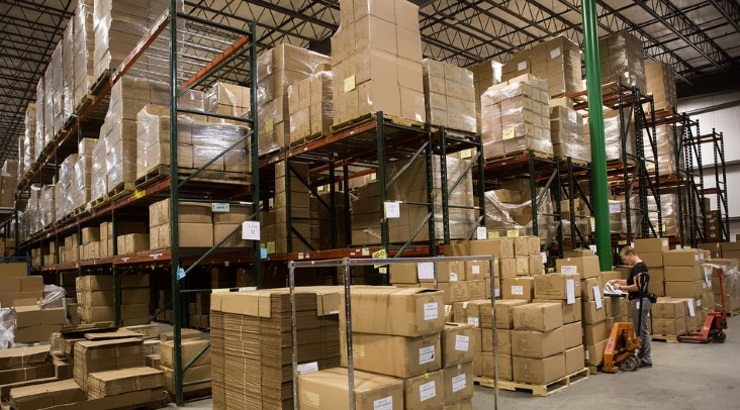Industry News
Online Commerce Sparks Warehouse Boom in Nairobi
The growth of e-commerce in Kenya has led to increased demand for warehouse.

Increased demand for warehouses from e-commerce firms and retailers aiming to enhance online sales is reshaping Kenya’s industrial property market and fueling new developments.
Property developers are increasingly setting up new warehouses in strategic locations to meet the growing demand from local and international companies in need of space, according to a report by commercial property services firm Broll Kenya.
“The growth of e-commerce in Kenya has led to increased demand for warehouse spaces. This is as a result of a change in shopping habits in favour of home deliveries as opposed to conventional shopping,” says the Broll Property Group’s Sub-Saharan Africa Snapshot 2017.
The shift from brick-and-mortar shopping to e-commerce has seen several small-scale online retailers expressing interest in leasing warehouses in Nairobi, the report says.
Kenyans spent Sh10 billion on e-commerce platforms last year, up from Sh2.4 billion in 2014, making online shopping increasingly vital to the economy.
Mobile penetration
This trend is being driven by increasing mobile penetration. In March, mobile penetration stood at 79 per cent in Kenya – amounting to over 38 million people.
About 97 per cent of these people are connected to the Internet, which will help drive the growth of the logistics sector.
And as heavyweights such as Jumia continue to expand their inventories, while pushing for same-day deliveries, the need for warehouses in Nairobi will shift from the traditional nodes in the Industrial Area to newer nodes on Mombasa Road, Eastern Bypass, and Thika Road, which have “newer warehouses, coupled with improved infrastructure and access”.
Broll, however, noted that the local market predominantly has Grade-B and Grade-C spaces with Grade-A warehousing still in its infancy stage.
“Kenya’ first pure A-grade industrial development is under construction at Tatu City and is due for completion in 2020. It has received interest, especially from international warehouse occupiers seeking industrial spaces,” Mr Horne said.
RELATED: Work Begins on Kenya’s Largest Warehouse
The hot market is expected to create opportunities for owners of vacant bulk space who can afford to put up high-quality warehouses to meet the current e-commerce standards.
The report echoes survey findings of Britam Asset Managers who anticipate a warehouse development boom in the country after the elections.
The findings, which were published last month, showed that A-grade warehouses were the most sought-after industrial properties by multinationals setting up bases in the country.
“Quality warehouses remain scarce in the Kenyan market and this presents developers with an opportunity to undertake warehousing projects,” the report said, citing transport and energy infrastructure development is the main catalyst for the sector’s success.
Britam expects that the demand for logistics hubs will continue to grow as companies shift from ownership of warehouses to concentrate on their core businesses in a bid to cut costs and boost efficiency.
RELATED: Forget Homes, Builders Have Found a New Money-Maker
Global commercial real estate firm JLL, in its latest study, has noted that developers in Nairobi estimate that for new prime industrial developments to be feasible rentals of at least Sh620 per square metre a month should be achieved.
“If rental levels drop below this threshold, new prime developments tend to not be feasible. Sustainable and affordable rental levels will therefore remain a major factor affecting the growth of the prime industrial sector,” writes JLL.
Ordinarily, most warehouses in Kenya are situated in Nairobi, Mombasa and Kisumu, with major nodes located on Mombasa Road and Baba Dogo.
Shortage of land and congestion in these areas is forcing developers to shift focus to emerging nodes such as Ruiru, Thika Road, and Kikuyu – which are now attractive due to the Northern and Southern bypasses.
Besides Tatu, other prime logistics hubs currently underway in the emerging nodes include Nairobi Gateway Logistics Park on Mombasa Road, Infinity Industrial Park on Eastern Bypass and Tilisi Logistics Park on the Nairobi-Nakuru highway.














